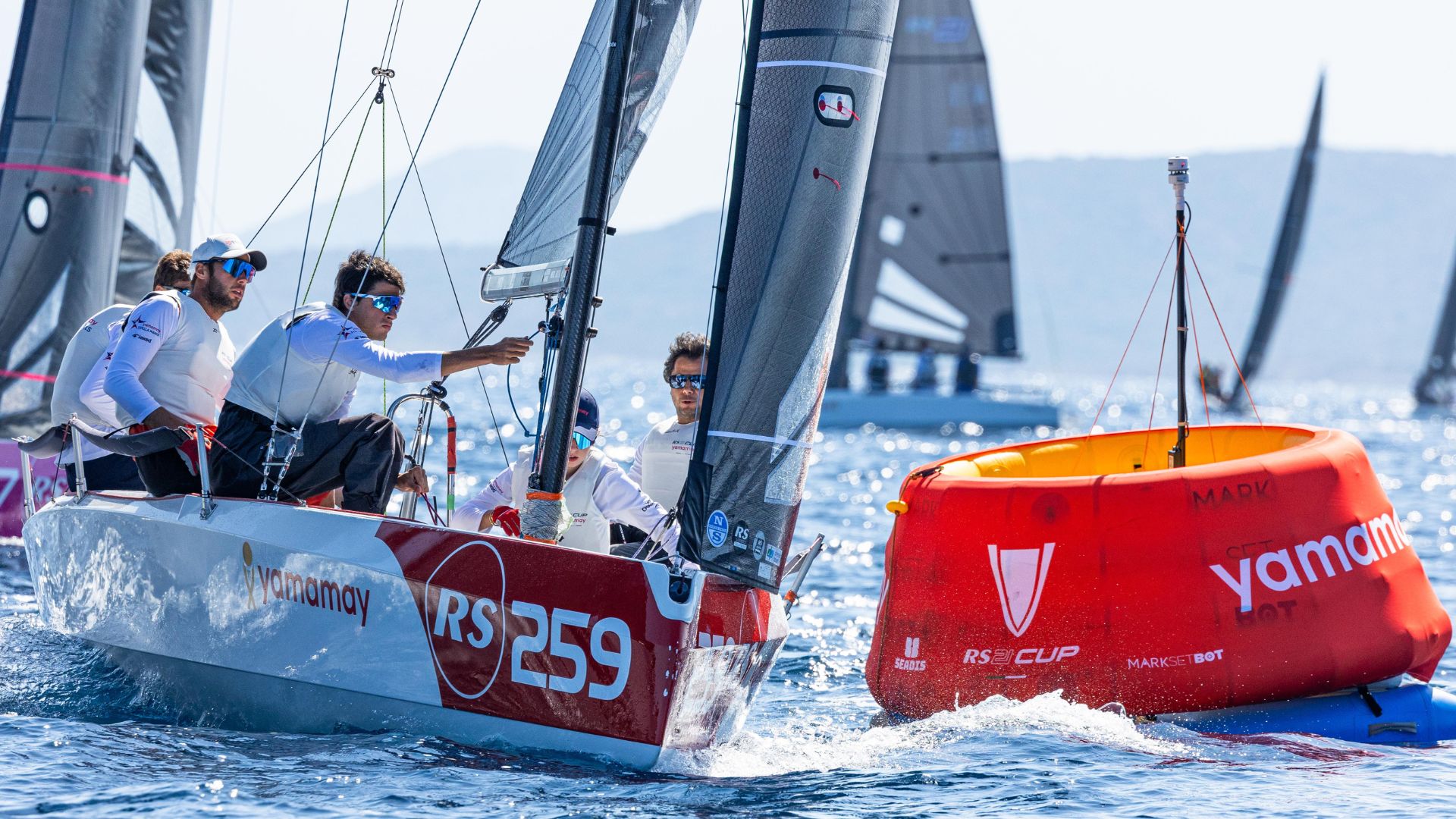Recognised as one of the oldest sports, sailing is based on centuries of traditions and customs. However, that doesn’t mean that they are stuck in the past! More and more yacht clubs, events and classes are bringing sailing into the 21st century by adopting new technology that focuses on improving racing, increasing data analysis and promoting sustainability. One such technology that is revolutionising the sailing industry is robotic buoys. These anchorless marks are controlled remotely and make it possible to move the entire course with just a couple of clicks.
The 2023 RS21 World Championship in Sardinia, Italy, is using robotic racing marks created by MarkSetBot. The first to enter the market, MarkSet Bot is a US-based company that created their first robotic buoy in 2017. Their buoys – better known as “Bots” – are self-propelled and use GPS technology to zero-in on a specific location. They anchorlessly hold position until you instruct them to move. With a user-friendly mobile interface, easy inflatable assembly, and effortless repositioning, they make precise race management in any condition simple – with no complex equipment and fewer volunteers needed.
Following on from a successful partnership at the Worlds in 2022, the RS21 World Championship 2023 are using MarkSetBot for a second year in a row – due to a multitude of benefits the technology presents when compared to traditional marks. Common race committee challenges include deep water, shifty wind, challenging currents and motorboat issues. All of these can lead to race delays and can ultimately result in fewer races being sailed. Robotic buoys help minimise delays; without anchors there is no time wasted trying to pull up hundreds of feet of anchor line. Plus, the motor means that they can move to accommodate a shift almost immediately. Further, as more and more events focus on increasing sustainability, robotic buoys are the clear solution. Reducing the need for power boats, these marks are also battery powered, greatly lowering the level of fuel emissions. No anchors means no seabed damage, a huge concern caused by anchored marks.
RS Sailing has been a strong proponent of this new technology from the beginning; highly conscious of increasing sustainability in the sailing industry. The RS21 Class specifically seeks to raise the bar when it comes to being environmentally friendly. “Aside from the eco-friendly design of the RS21, the RS21 Italian Class Association endeavour to build up a team of sponsors and affiliates that have the same mindset and motivation” – Nick Redding, RS21 Class Manager. He continues, “These sponsors include companies like MarkSetBot. Reducing CO2 emissions and seabed damage is a crucial aspect of improving the ecological impact sailing has on the world.”
It’s not just about the RS21 World Championships, MarkSetBot and have been used at some of the world’s most elite events, including Melges 24 Worlds, 52 Super Series, RC44 Cup and J70 Worlds, to name just a few. RS Sailing was introduced to and has worked extensively with MarkSetBot through SailGP. Like RS Sailing, MarkSetBot has been a partner of SailGP since its creation in 2019 and has more recently been working with them to create their massive GP Bots, that come in at 3.5 meters tall and 5 meters wide, for use on the F50 course.
The availability of smart technology racing marks has increased dramatically over the last several years. Clubs and events have the ability to both buy or rent racing marks, meaning they can be used for one event or every day. The smart technology behind these racing marks is easy to learn and offers users a suite of features and add-ons such as wind data and pre-programmed course layouts that streamline the entire course set-up process. Though simple to use and operate, the complex nature of creating this hi-tech product has led to only a few companies within the market. MarkSetBot is one of the best known alongside SmartMark and some of the other names emerging in this new industry are RoboMark and Smark.
As the sailing industry becomes more and more advanced, RS Sailing aims to stay at the forefront, creating boats out of more durable and sustainable materials and running events that employ the best technology available. The use of robotic buoys is just one of the many ways that they showcase the commitment to advancing the sport of sailing while remaining true to the core traditions of the sport. The RS21 World Championship 2023 in Sardinia is hoping to continue to make waves on commitments to improved sustainability with MarkSetBot a game-changer alongside it.














